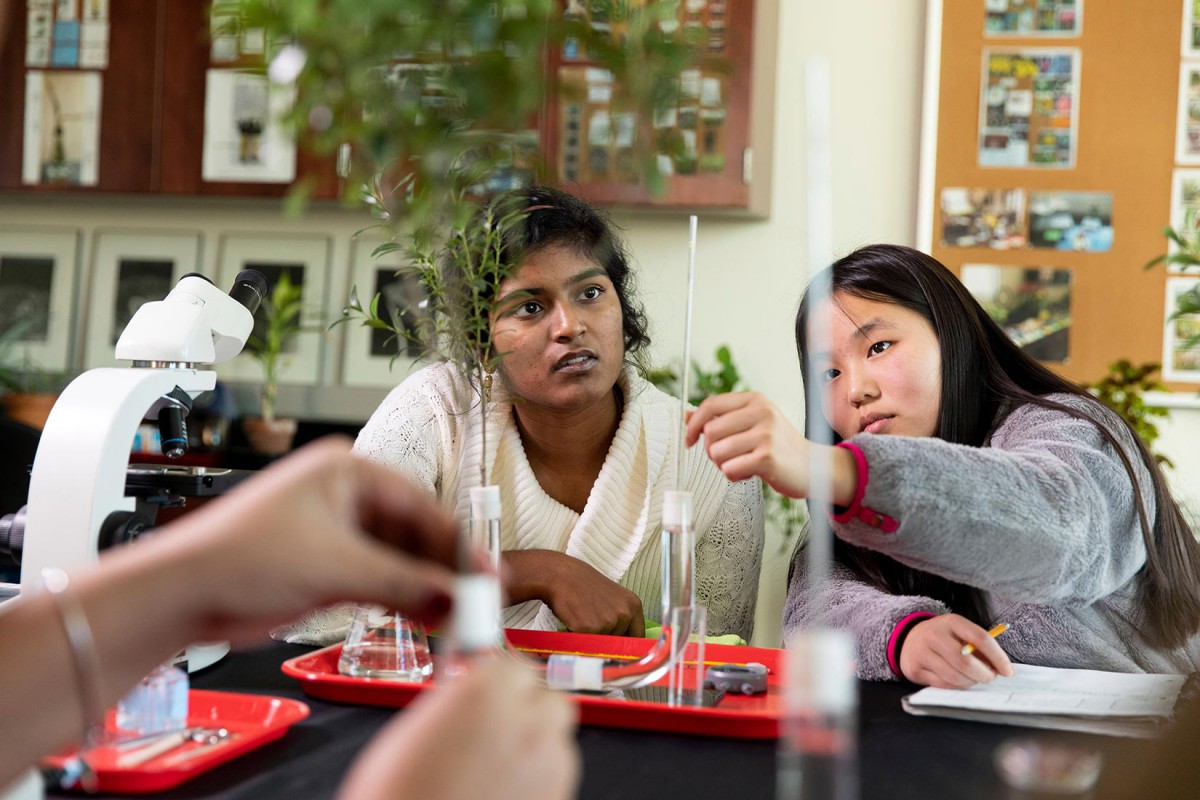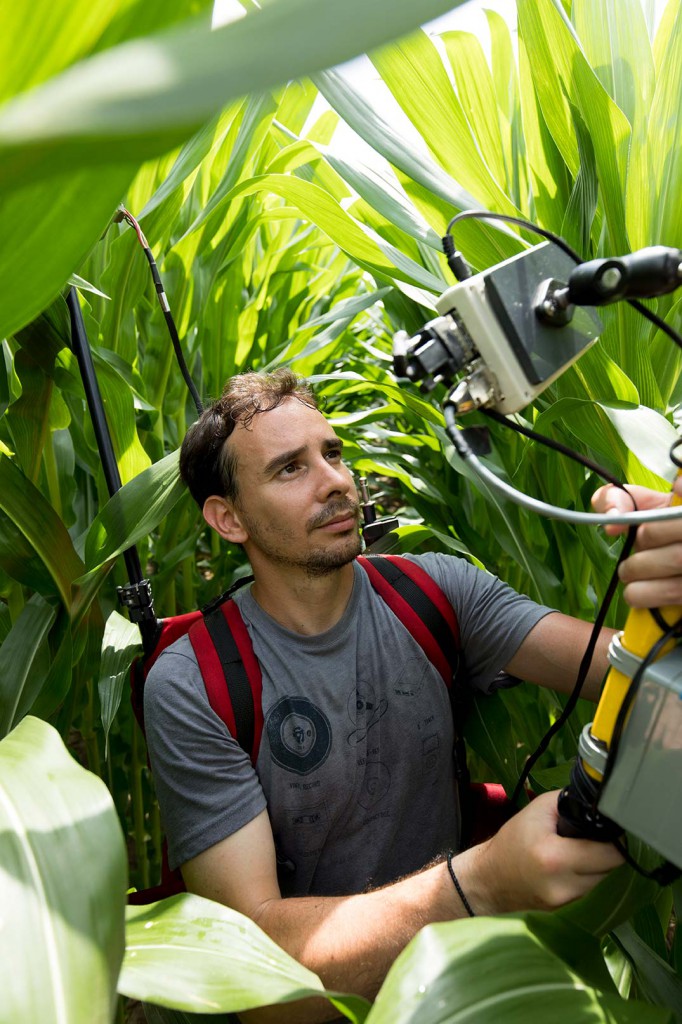
The IPS curriculum is designed to facilitate the transition to graduate research and education, and your thesis topic. The first semester is structured to engage students in different research experiences and to teach good research practices. Research rotations provide an opportunity for students to explore the breadth and depth of plant science research available at UGA through the IPS program before formally committing to a thesis project and advisor.
Fall Semester Coursework
Required Courses
- GRSC 8500. Research Techniques in Integrated Plant Sciences (IPS).
Three 5-week rotations. Students can request a rotation with ANY of our 72 IPS-affiliated faculty who are drawn from eight departments/institutes. Students can expect to have 30+ hours of time per week for research-related activities.- Rotation dates for Fall 2023
- 1st rotation: August 16 – September 19
- 2nd rotation: September 20 – October 24
- 3rd rotation: October 25 – December 5
- Rotation dates for Fall 2023
- GRSC 8550. Responsible Conduct of Research.
Students will explore ethical issues in research, including codes of ethics for professional organizations, the responsible conduct of research, and the development of personal professionalism and ethics. - GRSC 7001. GradFIRST: First-year Research and Scholarship Training Seminar.
Provides opportunities for professional development and transdisciplinary training for first-year graduate students in areas key to academic success and encourages engagement with graduate program faculty and graduate students. Topics include the ethical conduct of research and scholarship, the development of scholarly writing and communication skills, getting the most out of graduate mentoring, and resources available to support students with grievances and other interpersonal concerns.
Elective Courses (choose one)
- Basic Plant Biology
- HORT/CRSS 6430 Plant Physiology:
Basic principles of plant physiology, including water relations, solute and phloem transport, photosynthesis and respiration, plant genomes, regulation of plant gene expression, phytohormone biology, and plant growth and development, or - HORT 8150, Plant Growth and Development:
The physiological processes of growth, juvenility, maturity, flower initiation and development, embryogenesis, fruit set, senescence, dormancy, and environmental effects on growth and development.
- HORT/CRSS 6430 Plant Physiology:
- PBGG/CRSS/HORT 6140. Plant Breeding:
Fundamental principles and theories utilized in the science of plant breeding and cultivar development and the role breeding plays in crop improvement. - PATH/PBIO 6200/6200L Mycology:
The biology, ecology, genetics, morphology, and taxonomy of fungi and groups of organisms traditionally classified with the fungi. - PBGG/CRSS 8010. Research Methods and Design for Crop Science:
Foundational methods to design and conduct effective field trials for plant research. - PBIO 6720. Plant Variation and Evolution:
Conceptual basis and empirical approach for understanding genetic processes and patterns in natural plant populations (fall of even numbered years). - PBIO 8890-8890D. Plant Reproductive and Physiological Ecology:
Principles of plant reproductive and physiological ecology as they relate to plant ecological and evolutionary success (fall of odd numbered years). - PBIO 8100, Advanced Plant Genetics:
Advanced course covering modern plant genetics and genomics. Students are expected to supplement lecture material through reading assigned primary literature and review articles. - Quantitative Skills
- STAT 6315. Statistical Methods for Researchers:
Basic statistical methods through one- and two-sample inference, regression, correlation, one-way analysis of variance, analysis of covariance, and simple methods of categorical data analysis. Alternative STATS courses are STAT 8200, or FANR 6750-6750D - BINF/GENE 8940 Applied Genome Analysis:
Hands-on application of bioinformatics approaches used in whole genome analyses.
- STAT 6315. Statistical Methods for Researchers:
Spring Semester Coursework
The second semester marks the start of the thesis research. After deciding upon a thesis advisor and graduate program, IPS students matriculate into a department- or institute-based graduate program and formally become a student of the chosen program. All students must meet the degree requirements of the chosen graduate program in order to receive a graduate degree. In general, most require a defined set of coursework, successful completion of advancement to candidacy exams, and a body of work that satisfies the requirements of the degree being sought. For details on program-specific requirements, please refer to the websites of the participating units.
